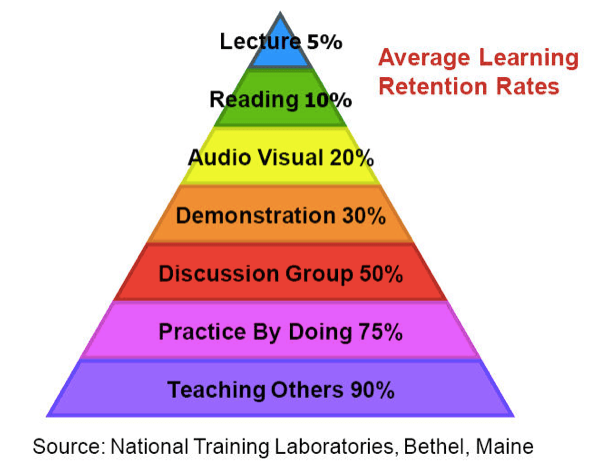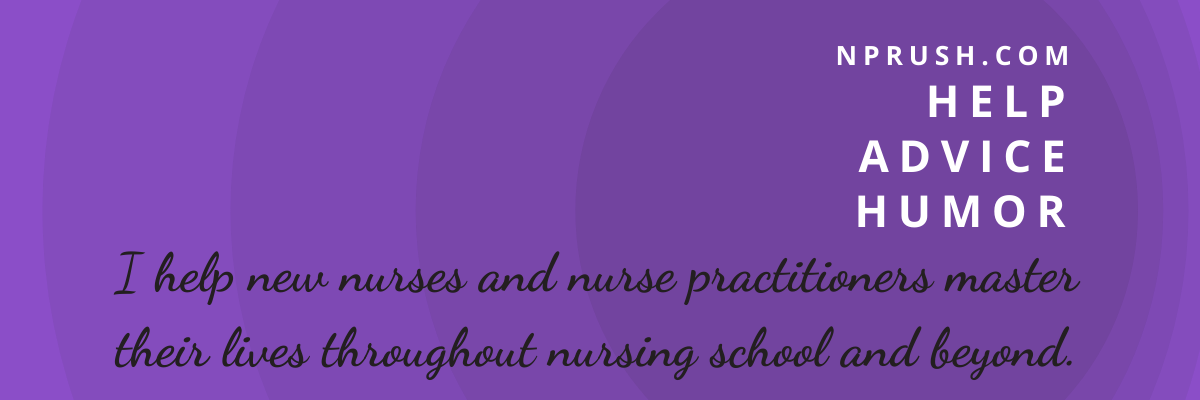Retaining information while studying is downright tough. It doesn’t matter your age, your gender, or your study habits. It doesn’t matter your experience level, how many hours you’ve studied, or how many goals you have set.
Unless you have a photographic memory, when it comes to learning you worry about long-term retention, especially in higher education where the information can be more complex.
Don’t despair. There are ways for students to be successful!
1. Student, Know Thyself
Choose the best time to study. You know you better than anyone does. Although it’s different for everyone, our minds focus differently during certain parts of the day. There are night owls and early risers. Knowing when you’re most alert and receptive to new information can help determine the optimal time for you to study.
2. Teach Back
Teach the concept to someone else. Explaining a concept to someone else — even if it’s your stuffed bear — is a sure fire way to help you understand it better. As a nurse, I’ve used this method with my patients a lot. I teach them something, then have them teach it back to me.
According to the National Training Laboratories, teaching others has a 90% retention rate.

The National Training Laboratories in Maine created the Learning Pyramid in order to discuss various levels of retention based on learning methods.
The top four levels are passive methods of learning: lecture, reading, audio/visual, and demonstration.
The bottom levels show active learning methods: group discussion, practice by doing, and teaching others.
So roll up your sleeves, participatory learning methods clearly rule when it comes to retaining information while studying.
3. Visual Learning
Draw pictures to involve you whole brain. It’s one thing to read and hear the information, but for most of us, our minds think in pictures.
Visual imagery works for learning because the pictures act as cues to the target information.
I am not an artist. The best drawing I can manage while studying is a mind map with random flowers sitting in the corners of the pages. However, I found the process of writing out a mind map very useful as it provided a picture or a graphic (of sorts) that my mind could go back to for recall.

4. One Thing at a Time
Pick one topic and stick with it during each study session. In higher education, extreme focus may be needed for certain topics and leap frogging from topic to topic will decrease your ability to improve retention.
For optimal retention, read a section of text and stop. Reflect on the concepts and key words. Review the new idea and, before moving on, take some hand-written notes or write our a mind-map.
5. Create a Memory Palace
Creating a memory palace is the best! Once you master this, retention will skyrocket!
A memory palace is a way of using images to store information in your mind. The most popular method requires the learner to make a journey in their mind through a well-known place like their home or their hometown.
Find details here: Create a Memory Palace

6. Spaced Repetition
Spaced repetition is a method of learning based on science. Basically, if you don’t use new information, your mind will simply forget it. So, the more often you encounter bits of information, the more likely you’ll remember it.
Spaced repetition allows you to keep going over the new information at different intervals. It’s sort of like flashcards, but with a 21st century twist. I used Anki for months and months and highly recommend it. But there are other intelligent flashcard systems that automate learning or you can create written flashcards if there’s not a lot of information to track.
- Create a list of the information you need to learn in flashcard style.
- Review new information within 24 hours of adding it to your “learn” list. As you move from card to card, do you answer it easily? Then put that card in a “review in 3 days” pile.
Do you not know the information? Then put that card in the “review in 24 hours” pile. - Tomorrow, you’ll start with any new information
Remember: insight without action is worthless!
Choose one insight on retention and start today!
In peace and light,
Joolz





